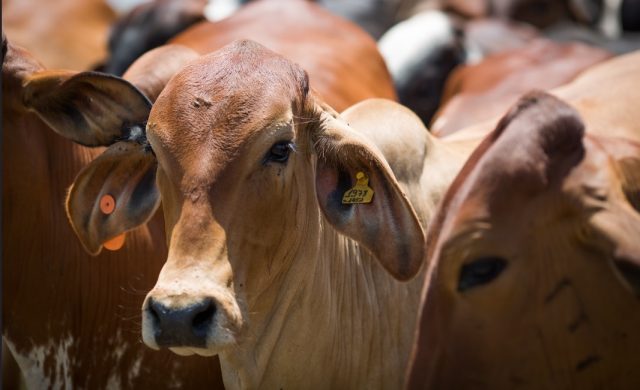Farmers from Mato Grosso do Sul, members of the Pantanal Association for Organic and Sustainable Livestock (ABPO), broke a new slaughter record in 2022, reaching 78,337 head of cattle sent to slaughterhouses. This volume represents 87.55% more than the amount slaughtered in 2021.
In addition, the Mato Grosso do Sul state government program, which reduces ICMS for those producers who opt for these organic or sustainable production systems in the Pantanal, totaled R$9.1 million in bonuses for farmers, according to the Secretariat of Environment, Development, Science, Technology and Innovation (Semadesc).
“This model respects not only the environment and social issues, but also the pockets of rural entrepreneurs” — Eduardo Cruzetta
“The growing volume of slaughter shows that the producer class is increasingly engaged in producing strategically and consciously. The resources generated through ICMS discounts make it clear that efficient public policies generate practical results, such as increased production of proteins with certified origins, through a rigid production model. This model respects not only the environment and social issues, but also the pockets of rural entrepreneurs”, points out ABPO president Eduardo Cruzetta.
ABPO and carbon neutrality in MS
From 2021 to 2022, the area certified for these organic and sustainable production systems in the Pantanal increased by 54.7%, going from 713,612 hectares to 1,103,712 hectares. The number of ABPO members who manage these areas reached 96, from a total of 38 members in the period of one year. According to Semadesc, the progress in slaughtering is directly related to the Pantanal Sustainable Meat Program and the producers’ adherence to the project, which offers a 50% ICMS discount for sustainable production and 67% for those who opt for the organic production model. This is one of the actions that will meet the goal of making Mato Grosso do Sul carbon neutral by 2030.
The head of Semadesc, Jaime Verruck, praised the performance of ABPO. “The good work that the ABPO board has been doing and attracting a greater number of producers to the association is commendable. This growth results in progress in the program and shows that we are on the right track to achieving sustainable, low-carbon livestock farming, so that by 2030 we can reach the carbon neutral goal for Mato Grosso do Sul,” he emphasized. Harmony between government and association
According to Rogério Beretta, Executive Secretary for Economic and Sustainable Development (Semadesc), the result shows the harmony between the government and ABPO. “These numbers prove the integration and harmony that exists between the Association of Producers and the State Government, which together worked to create the protocol for sustainable meat from the Pantanal. The protocol introduced modern concepts of sustainability, which meet the interests of both producers and the State in ensuring sustainable production in Pantanal livestock farming,” he said.
ABPO Executive Director Silvio Balduíno points out that this format of valuing livestock farming benefits consumers, rural producers, the environment, and society. “We work to value these cattle ranchers, who have adopted the sustainable production system in various biomes, as is the case in the Pantanal of Mato Grosso do Sul. Any initiative that aims at sustainable farming and brings dignity to the professionals involved, generating a product that brings value to the consumer, deserves to be highlighted in the market. This is a path of no return”, he concludes.
Source: Canal Rural

